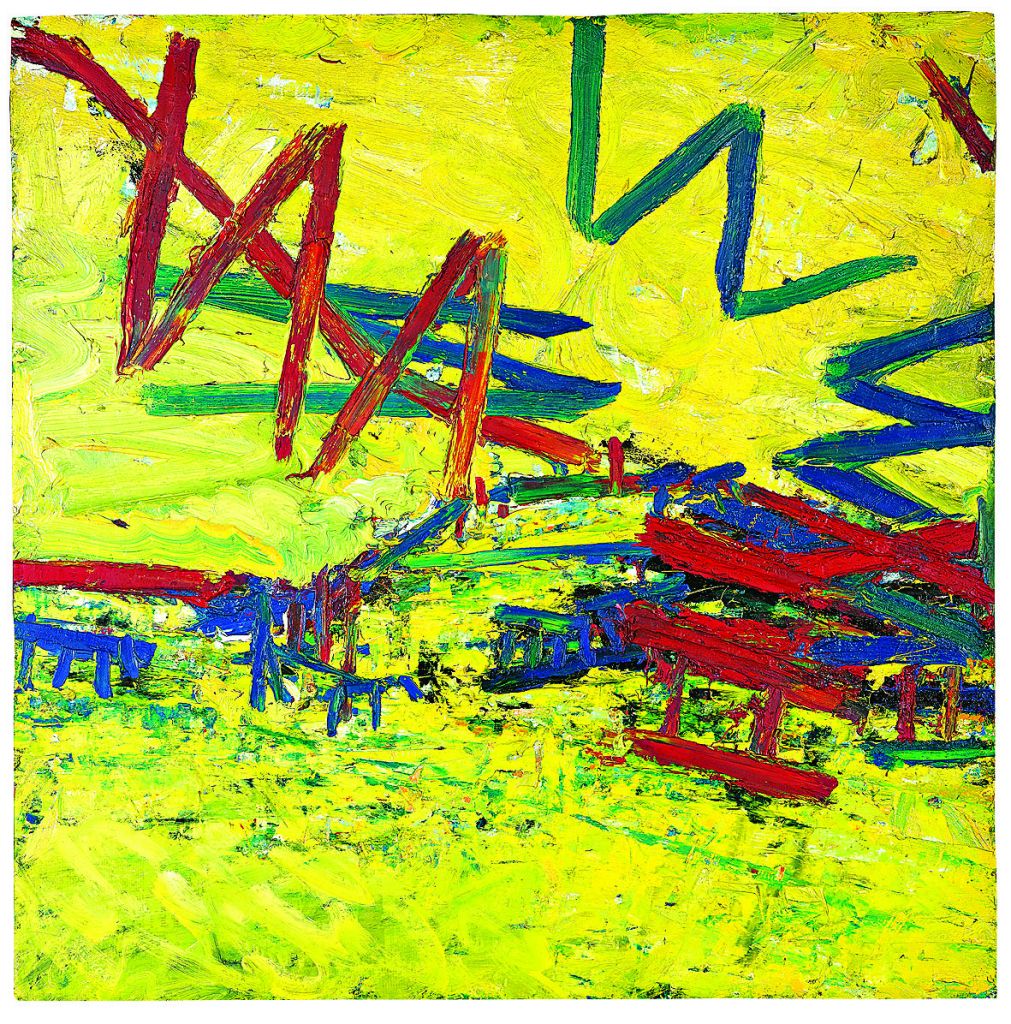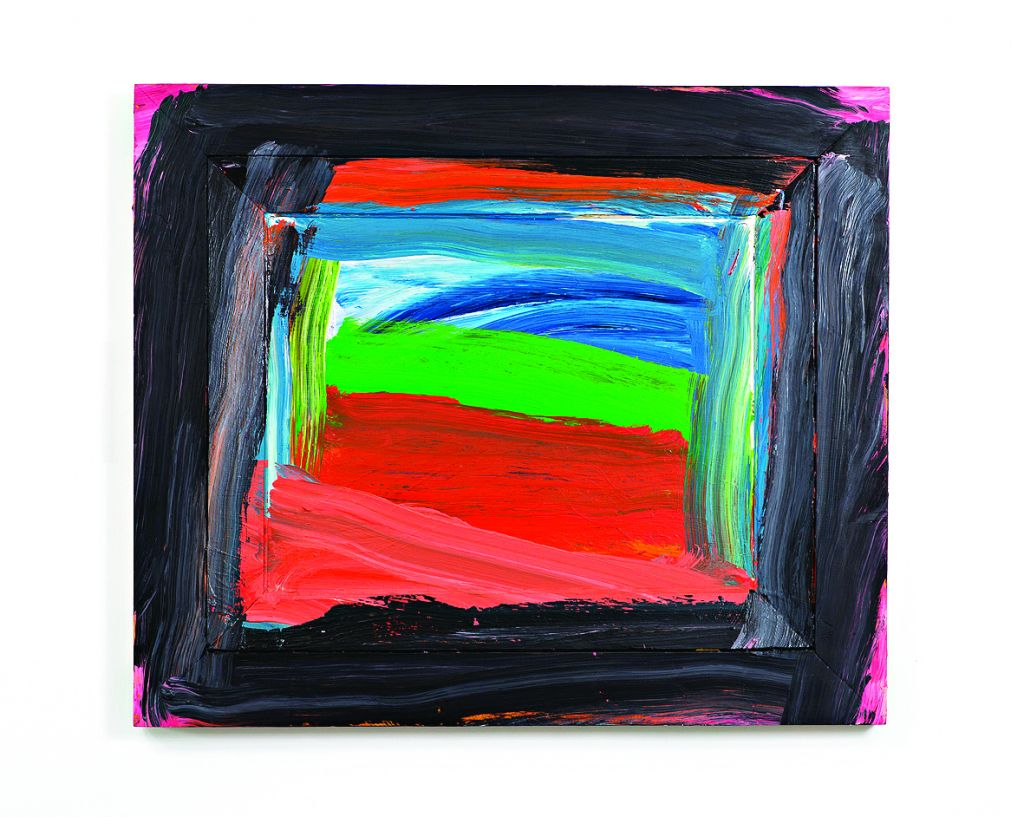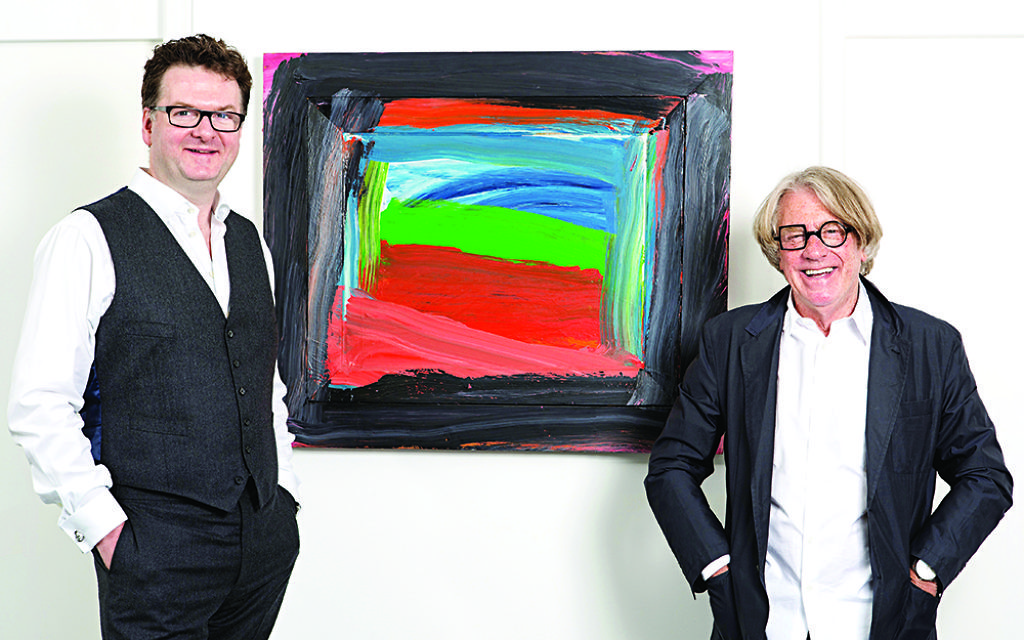Frankly, it’s all about art
Art collector Frank Cohen, dubbed the “Saatchi of the North” speaks to Rebecca Wallersteiner about lending 60 of his favourite works to Fortnum & Mason’s
Fortnum and Mason’s has can lay claim to a number of “firsts”. The famous upmarket department store in Duke Street, founded in 1707, invented the world’s first (and-not-so-kosher) Scotch Egg and was one of the first stores to dispatch beef tea overseas to British troops in the Crimea.
For the last month, the store can now also mark up another first: a free pop-up show of 60 paintings lent by a Jewish art collector who has been dubbed the “Saatchi of the North”.
Walking past Fortnum and Mason’s front-windows facing the Royal Academy, you can see ravishing paintings by Leon Kossoff and Frank Auerbach, part of an extraordinary collection garnered by Frank Cohen and his wife, Cherryl over half a century.
Get The Jewish News Daily Edition by email and never miss our top stories Free Sign Up
“I am delighted to be collaborating with Fortnum’s on this exciting project and thrilled that new audiences will have the opportunity to see my collection in such a wonderful setting,” says the flamboyant Cohen, who looks amazingly young for his 72 years.
One of the UK’s most important private art collectors, Cohen raised £30,000 for Manchester’s Jewish Museum and has lent his pictures to the Ben Uri Gallery, the Jewish Museum in London and Chatsworth House.
So how did Cohen, who made his fortune by founding a chain of DIY stores, start his vast collection? As a child, the Manchester-born art enthusiast tells me he loved to collect cigarette cards, swapping them with the other boys at school, and later coins.

His sense of entrepreneurism was fired around the age of 15 when he left formal education.
“I started working the markets with Howard Jacobson’s father, Maxie, before setting up my own business selling wallpaper from the back of an old ambulance,” he recalls with a smile.
Later he opened Glyn Webb, a chain of highly successful DIY stores across northern England, where he met his wife, Cherryl, who came to work for him.
Her father was an art dealer and she had grown up surrounded by art.
“It was my father-in-law, who was chairman of the Fine Art Trade Guild and a successful glass manufacturer and cabinet maker, who gave me an education in art,” explains Cohen.
In 1970, the couple acquired their first painting, a charming, small Lowry, titled Our Family, for which they paid £1,100.

This purchase sparked Cohen’s passion for collecting and from then on there was no stopping him.
From the start the couple chose and bought art together. Although many of their artists are now world-acclaimed, this wasn’t always the case.
Cohen has often been ahead of the art world – he was buying Edward Burra in the 1970s, when he was little-known and before his prices shot up.
“I prefer to rely on my own judgement and buy what I want to see on my walls. When I discover an artist I like, I set out to buy every piece I can find,” says Cohen, who opened a non-profit visual arts centre in Bloomsbury, called The Dairy Centre.
This has included several leading Jewish artists, including David Bomberg and his former students Frank Auerbach and Leon Kossoff – and you can see some of their best works in the show.
Don’t miss seeing the beautiful Bomberg displayed on the fourth floor staircase of the store and a couple of Leon Kossoffs behind the main cash desk on the ground floor.
Interestingly, much of the art Cohen collects was created during his lifetime, reflecting his own experience of the world he grew up in.
He is particularly drawn to the 1950s Geometry of Fear group of painters, including Bomberg, Auerbach and Eduardo Paolozzi.
These artists were predominantly working-class and influenced by the atmosphere of uncertainty of the Cold War world.
What do Cohen’s parents think about his art collecting?
“They probably wouldn’t even know what art was!” answers Cohen with a broad grin, referring to his father, who worked in a factory.
In keeping with Cohen’s democratic spirit, Fortnum’s installation places the artworks in such a way that it encourages passers-by, from all backgrounds, including street-cleaners and people on the bus, to stop and take a look.
But it is inside the store that the true beauty of his collection shines through.
“Next year they will have to change their name to Fortnum and Mason and Cohen,” he chuckles.
• Fortum’s X Frank runs until October 15 at Fortnum & Mason, Piccadilly, W1. For more details visit https://www.fortnumandmason.com/

Thank you for helping to make Jewish News the leading source of news and opinion for the UK Jewish community. Today we're asking for your invaluable help to continue putting our community first in everything we do.
For as little as £5 a month you can help sustain the vital work we do in celebrating and standing up for Jewish life in Britain.
Jewish News holds our community together and keeps us connected. Like a synagogue, it’s where people turn to feel part of something bigger. It also proudly shows the rest of Britain the vibrancy and rich culture of modern Jewish life.
You can make a quick and easy one-off or monthly contribution of £5, £10, £20 or any other sum you’re comfortable with.
100% of your donation will help us continue celebrating our community, in all its dynamic diversity...
Engaging
Being a community platform means so much more than producing a newspaper and website. One of our proudest roles is media partnering with our invaluable charities to amplify the outstanding work they do to help us all.
Celebrating
There’s no shortage of oys in the world but Jewish News takes every opportunity to celebrate the joys too, through projects like Night of Heroes, 40 Under 40 and other compelling countdowns that make the community kvell with pride.
Pioneering
In the first collaboration between media outlets from different faiths, Jewish News worked with British Muslim TV and Church Times to produce a list of young activists leading the way on interfaith understanding.
Campaigning
Royal Mail issued a stamp honouring Holocaust hero Sir Nicholas Winton after a Jewish News campaign attracted more than 100,000 backers. Jewish Newsalso produces special editions of the paper highlighting pressing issues including mental health and Holocaust remembrance.
Easy access
In an age when news is readily accessible, Jewish News provides high-quality content free online and offline, removing any financial barriers to connecting people.
Voice of our community to wider society
The Jewish News team regularly appears on TV, radio and on the pages of the national press to comment on stories about the Jewish community. Easy access to the paper on the streets of London also means Jewish News provides an invaluable window into the community for the country at large.
We hope you agree all this is worth preserving.
-
By Laurent Vaughan - Senior Associate (Bishop & Sewell Solicitors)
-
By Laurent Vaughan - Senior Associate (Bishop & Sewell Solicitors)
-
By Laurent Vaughan - Senior Associate (Bishop & Sewell Solicitors)
-
By Laurent Vaughan - Senior Associate (Bishop & Sewell Solicitors)






















